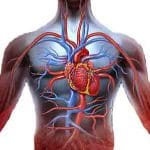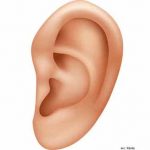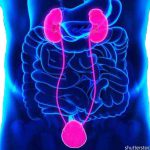NEWS on general implant topics
Human materials for 3D printing human tissue
Biomaterials required for 3D printing living cells are currently produced on an animal basis. A research project intends to develop materials based on human placental tissue for various 3D bioprinting technologies. 3D bioprinting aims to produce tissue structures for numerous applications such as non-animal testing, drug screening and regenerative medicine....
Experts for secure health data exchange
Berlin - Health researchers are expecting progress from the EU Commission's initiative for cross-border use of medical data. Health researcher Ferdinand Gerlach of the University of Frankfurt am Main highlighted the practical benefits of a European Health Data Space. It is a matter of life and health if physicians throughout...
Human tissue 3D printer under development (Cellbricks)
Many patients wait years for a donor organ. This could soon change. "In a few years, if a woman develops breast cancer, we can reconstruct her breast with real cells," says von Arnim of the Cellbricks company. The team has provided proof that the reproduction of cells using printing processes...
Sensitive drill for hearing implants
Inserting the implant into the inner ear is not without risks, as facial nerves can be injured in the process. Empa researchers have developed a new type of "smart" drill that minimizes this risk by automatically switching itself off when near nerves. Methods of "advanced manufacturing" could also lead to...
Musk intends to implant brain computer chips in humans in 2023
Elon Musk and one of his other companies intend to begin testing computer chips in the brain next year. Neuralink will be able to insert the implant into a person's brain in 06-2023, Musk announced at his startup's annual press conference. The interface produced by Neuralink will make it possible...
Tips for Clinicians – Keeping Your Patients’ Connected Medical Devices Safe
Educating patients about cybersecurity of connected medical devices shouldn’t be a scary conversation for health care providers. Connected medical devices are often an important part of patients’ and their families’ lives since they rely on such devices to stay safe and healthy. The U.S. Food and Drug Administration (FDA) released...
More pragmatic randomized studies with a focus on registry-based trials
Background Randomized controlled trials (RCTs) that are highly restrictive in terms of study design, with highly selected participants and conditions, produce results whose applicability to routine clinical care and usefulness for reimbursement decisions is sometimes questioned. Objectives In view of the background mentioned above, do more pragmatic RCTs and registry-based...
Does SARS-CoV-2 cause implant losses?
Limited information on the skeletal complications of COVID-19 is known, even though inflammatory diseases of the respiratory tract have been known to perturb bone metabolism and cause pathological bone loss. In this study, we characterize the effects of severe SARS-CoV-2 infection on bone metabolism in an established golden Syrian hamster...
bioprinting tissue-like constructs capable of controlled, complex shape change
Where standard 3D printing uses a digital blueprint to manufacture an object out of materials like plastic or resin, 3D bioprinting manufactures biological parts and tissues out of living cells, or bioinks. A fourth dimension — shape transformation over time — can be achieved by incorporating materials that enable printed...
Find NEWS and PUBLICATIONS here according to your interests or use the search box.









